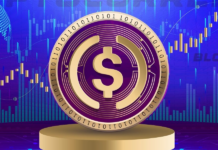
Art fair opens in the UAE this week with a new digital arts section and a series of talks on all things metaverse
Dubai is a self-proclaimed “city of the future”. Last month, it even opened the super high-tech Museum of the Future, where immersive technology lets visitors time travel to the year 2071 and explore space. Down the road is the Dubai Expo, a showcase of pioneering ideas from 192 participating countries, which will end its six-month run on 31 March. Against this backdrop, Art Dubai opens at its usual venue at Madinat Jumeirah for its 15th edition (11-13 March)—and it too has innovation in mind.
Capitalising on the trend for NFTs in the art world, the fair is launching the Art Dubai Digital section to “examine the context out of which NFTs, cryptocurrency, video art and virtual reality (VR) have grown since the rise of digital art in the 1980s, including those who are leading the way in the rapidly expanding digital arts space”, a statement says.
Seventeen galleries and platforms will present works in this section. The NFT curatorial platform MORROW Collective, which was founded in the NFT boom time of March 2021, is showing pieces by 35 artists with prices ranging from 0.8ETH to 10ETH (£1,800-£23,000; non-crypto prices may be higher). “We will have a screen dedicated to VR, showing our gallery spaces across different metaverse platforms, and we are also proud of our physical sculpture in the centre of the booth, produced by 3D printing from an NFT counterpart,” says the co-founder and curator of MORROW Collective, Anna Seaman.

Courtesy of the artists and Emergeast
Emergeast, an online gallery dedicated to emerging and mid-career artists from the Middle East and North Africa, is also taking part in the digital section with works priced from 0.8ETH to 8ETH (£1,800-£18.000). One of the works on show is CarpETHereum (2021) by Mazyar Kamkar and Reza Vojdani, showing an Ethereum currency sign wrapped in a Persian carpet—an ode to the birth of Web 3.0 in the Middle East.
GAZELL.iO, the digital arm of Gazelli Art House, will also show carpet-inspired works by the artist Orkhan Mammadov. Singularity in Heritage, part of the Revival of Aesthetics series, uses an artificial intelligence algorithm to collect Middle Eastern carpet designs to produce generative “imaginary” patterns. They will drop 333 NFTs, and prices for the works vary from three- to six-figure sums (GBP).

Courtesy of GAZELL.iO
Inescapable metaverse
Other sections in the fair are also entering the metaverse. Campus Art Dubai, an educational platform for artists, is presenting NFTs created by the 12 artists taking part in this year’s edition. The Global Art Forum talks series will be dedicated to “digital artefacts and crypto economies”, plus another set of talks—sponsored by the cryptocurrency exchange company Bybit—will “explain more about the basics of cryptocurrency, digital media and NFT art”.
This edition of Art Dubai is bigger than ever, with 100 exhibitors from 44 countries, including more than 30 first-time exhibitors. But while there will still be crypto-free corners of the fair, like the Modern section and its accompanying talks, they are few and far between.

Courtesy of the MORROW Collective
The fair’s artistic director, Pablo del Val, says the move to digital is a natural one: “For over 15 years, Art Dubai has been a place to discover and celebrate new trends, creating and facilitating conversations.” Dima Abdul Kader, the co-founder of Emergeast, adds that “an NFT/crypto focus for any art fair and art institution is a natural extension of the contemporary art market”.
But as Dubai becomes a crypto hub, could this edition mark a more permanent digital direction for Art Dubai? “Almost every week I hear of someone else who has moved to Dubai to start a business in crypto or NFTs,” Seaman says. “It is geographically central and sufficiently technologically advanced to nurture the blockchain space.” Ultimately, it will all come down to sales. As Nikki Meftah, Abdul Kader’s fellow founder, says: “We have no doubt the fair will be welcoming a whole new crowd this year on top of the traditional art collectors.”



































